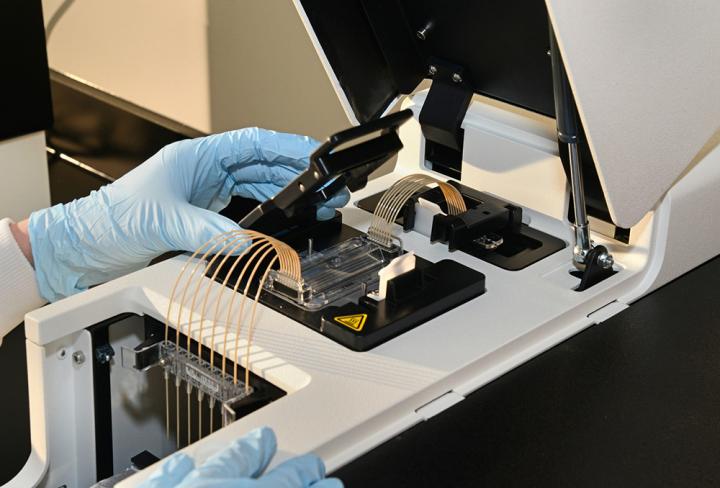Gene discovery points to new Covid-19 treatments
Potential drugs identified after the discovery of five genes associated with the most severe form of Covid-19.

Existing drugs that could be repurposed to treat Covid-19 have been identified in a study highlighting genes linked to severe forms of the disease.
Genes involved in antiviral immunity and lung inflammation have been pinpointed in the research, led by a scientist from the Roslin Institute.
The breakthrough will help doctors understand how Covid-19 damages lungs at a molecular level, and points towards existing drugs that could be affective against severe illness.
Genetic differences
Scientists studied the DNA of 2,700 patients in 208 intensive care units (ICUs) in the UK.
Researchers from the GenOMICC consortium – a global collaboration to study genetics in critical illness – compared the genetic information of Covid-19 patients in ICU with samples provided by healthy volunteers from other studies.
They found key differences in five genes – known as IFNAR2, TYK2, OAS1, DPP9 and CCR2 – which partially explain why some people become severely sick with Covid-19, while others are not affected.
Drug treatments
Scientists were then able to predict the effect of drug treatments on patients, because some variations of genes are known to respond in a similar way to particular drugs.
For example, they showed that a reduction in the activity of the TYK2 gene protects against Covid-19. A class of anti-inflammatory drugs called JAK inhibitors, which includes the drug baricitinib, produces this effect.
They also discovered that a boost in the activity of the gene INFAR2 could create protection, because it is likely to mimic the effect of treatment with interferon – proteins released by cells of the immune system to defend against viruses. However, experts caution that to be effective, patients might need the treatment in the early stages of disease.
Based on the findings, published in Nature, the researchers say that clinical trials should focus on drugs that target these specific antiviral and anti-inflammatory pathways.
This is a stunning realisation of the promise of human genetics to help understand critical illness. Our results immediately highlight which drugs should be at the top of the list for clinical testing. We can only test a few drugs at a time, so making the right choices will save thousands of lives.
This work is only possible because of the generous contribution of patients and their families, research teams in NHS hospitals across the country, and the generous funding we’ve received from the public and organisations.
This study is one of a number of Covid-19 studies that have been given urgent public health research status by the Chief Medical Officer and Deputy Chief Medical Officer for England.
GenOMICC is funded by the charity Sepsis Research (Fiona Elizabeth Agnew Trust), the Intensive Care Society, Wellcome, UK Research and Innovation, Scotland’s Chief Scientist Office and the Department of Health and Social Care via the National Institute for Health Research.
Identifying genes associated with severe Covid-19, including in young patients without known underlying health issues, will allow us to better target and accelerate research into new diagnostic and therapeutic approaches. This study builds on the UK’s leading capabilities in the genetic analysis of disease.
Contact information
Shane Canning, Press and PR Office
07557 820266, shane.canning@ed.ac.uk
** The Roslin Institute receives strategic investment funding from the Biotechnology and Biological Sciences Research Council and it is part of the University of Edinburgh’s Royal (Dick) School of Veterinary Studies. **
Related links
Roslin Covid-19 research


